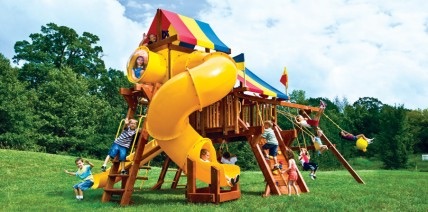Indianapolis; IN – Trademark attorneys for Dillinger, LLC of Mooresville, Indiana filed a complaint for injunctive relief and damages in alleging The Pour House on Lincoln, Inc. d/b/a Dillinger’s Chicago Bar & Grill, Inc. of Chicago, Illinois infringed trademark registration nos. 3,483,359 for the mark DILLINGER’S and no. 4,091,160 for the mark PUBLIC ENEMY which have been registered by the US Trademark Office.
![]() Dillinger, LLC is owned and operated by Jeff Scalf and, according to the Complaint, is the descendant of gentleman bandit John Dillinger. Dillinger, LLC owns numerous trademark registrations for DILLINGER, JOHN DILLINGER, PUBLIC ENEMIES, and many other trademarks related to the life of John Dillinger. Dillinger, LLC is also the owner of all rights, title, and interest to both DILLINGER’S and PUBLIC ENEMIES and both marks have been used in interstate commerce in connection with restaurant and bar services as early as 2002. According to the Complaint, Dillinger, LLC has never authorized The Pour House on Lincoln d/b/a Dillinger’s Chicago Bar & Grill to use the DILLINGER or PUBLIC ENEMIES marks in any way and also alleges that in July 2010 it came to their attention that the Defendants were operating a restaurant using the DILLINGER and PUBLIC ENEMIES trademarks. Upon their knowledge of the trademark usage, Dillinger, LLC alleges that The Pour House was contacted about the infringement and in August of the same year they traveled to Indianapolis for the purpose of obtaining a license for the use of the trademarks. The Complaint states that an oral agreement was reached and reduced to writing, but never executed and yet The Pour House willfully continued its infringing usage of the DILLINGER and PUBLIC ENEMIES trademarks, specifically on their website, food and drink menus and the menus posted on the storefront. Dillinger, LLC asserts five counts for the violations of the defendants, including demand for preliminary and permanent injunction; federal trademark infringement; cybersquatting; false designation of origin, false descriptions and unfair competition; and dilution by blurring. In order to avoid any irreparable harm from the loss of reputation the DILLINGER names could suffer as a result of the unauthorized use of the trademarks and the accrual thereof, Dillinger, LLC is seeking to permanently enjoin The Pour House from using the DILLINGER and PUBLIC ENEMIES trademarks or inducing such belief, actual damages suffered as a result of the alleged trademark violations, statutory and exemplary damages, and the profits derived from the infringing activities.
Dillinger, LLC is owned and operated by Jeff Scalf and, according to the Complaint, is the descendant of gentleman bandit John Dillinger. Dillinger, LLC owns numerous trademark registrations for DILLINGER, JOHN DILLINGER, PUBLIC ENEMIES, and many other trademarks related to the life of John Dillinger. Dillinger, LLC is also the owner of all rights, title, and interest to both DILLINGER’S and PUBLIC ENEMIES and both marks have been used in interstate commerce in connection with restaurant and bar services as early as 2002. According to the Complaint, Dillinger, LLC has never authorized The Pour House on Lincoln d/b/a Dillinger’s Chicago Bar & Grill to use the DILLINGER or PUBLIC ENEMIES marks in any way and also alleges that in July 2010 it came to their attention that the Defendants were operating a restaurant using the DILLINGER and PUBLIC ENEMIES trademarks. Upon their knowledge of the trademark usage, Dillinger, LLC alleges that The Pour House was contacted about the infringement and in August of the same year they traveled to Indianapolis for the purpose of obtaining a license for the use of the trademarks. The Complaint states that an oral agreement was reached and reduced to writing, but never executed and yet The Pour House willfully continued its infringing usage of the DILLINGER and PUBLIC ENEMIES trademarks, specifically on their website, food and drink menus and the menus posted on the storefront. Dillinger, LLC asserts five counts for the violations of the defendants, including demand for preliminary and permanent injunction; federal trademark infringement; cybersquatting; false designation of origin, false descriptions and unfair competition; and dilution by blurring. In order to avoid any irreparable harm from the loss of reputation the DILLINGER names could suffer as a result of the unauthorized use of the trademarks and the accrual thereof, Dillinger, LLC is seeking to permanently enjoin The Pour House from using the DILLINGER and PUBLIC ENEMIES trademarks or inducing such belief, actual damages suffered as a result of the alleged trademark violations, statutory and exemplary damages, and the profits derived from the infringing activities.
Practice Tip: U.S.C. title 15, chapter 22 governs trademarks, and §1117 specifically details the relief which can be granted as a result of trademark violation.
Continue reading
 Indiana Intellectual Property Law News
Indiana Intellectual Property Law News




